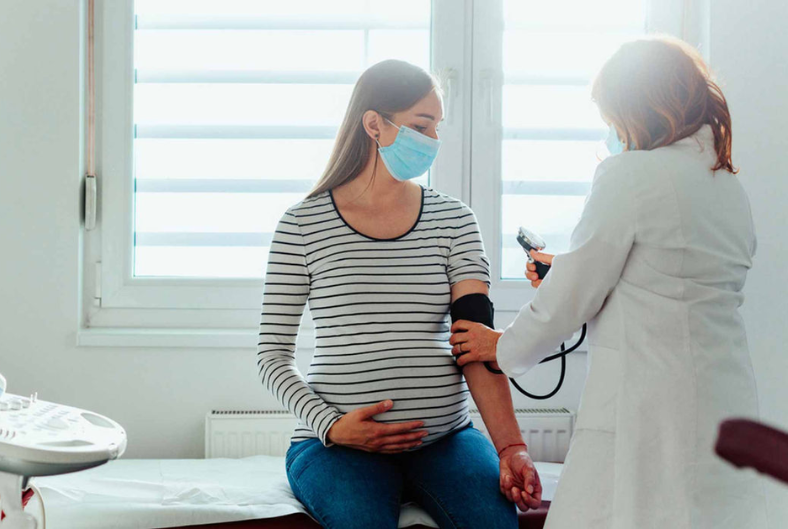Pregnancy is a special time, but sometimes, moms can face health problems. One such problem is preeclampsia. Understanding it and taking care of your health can help prevent future heart issues.
Preeclampsia is actually a condition that can happen during pregnancy. It makes the mother’s blood pressure go very high and can affect other organs too. It is important to know the signs of preeclampsia so you can get help quickly.
Signs of Preeclampsia
The signs of preeclampsia include swelling in the hands, feet, and face, headaches, and problems with vision. Sometimes, there may also be a lot of protein in the urine. If you notice these signs of preeclampsia, it’s important to talk to your doctor right away. Catching it early can help keep both you and your baby safe.
Preeclampsia Treatment
If preeclampsia is found, your doctor will suggest a preeclampsia treatment plan. This might include medication to lower blood pressure and help the body remove extra fluid. In some cases, the doctor might decide that it’s best to deliver the baby early to protect both mom and baby. Following the preeclampsia treatment plan is very important.
Postpartum Preeclampsia Symptoms
Sometimes, preeclampsia can continue even after the baby is born. This is called postpartum preeclampsia. The postpartum preeclampsia symptoms can be similar to the signs you had during pregnancy, like high blood pressure, headaches, and vision problems. It’s crucial to keep track of your health after giving birth and let your doctor know if you have these postpartum preeclampsia symptoms.
Preeclampsia with Severe Features
In some cases, preeclampsia can become more serious. This is known as preeclampsia with severe features. It can cause very high blood pressure and affect organs like the liver and kidneys. If you have preeclampsia with severe features, you might need more intense treatment and close monitoring from your healthcare team. Getting help early can prevent complications and help protect your heart health.
Preventing Heart Issues
Preeclampsia can affect your heart health in the long run. Women who had preeclampsia are at higher risk for heart disease later in life. To help prevent this, you should focus on maintaining a healthy lifestyle. Eating a balanced diet, staying active, and avoiding smoking are great ways to protect your heart health. Regular check-ups with your doctor can also help you stay on top of your heart health.
What You Can Do
- Know the Signs: Learn about the signs of preeclampsia and watch for them. Early detection can help manage the condition better.
- Follow Your Doctor’s Advice: If you are diagnosed with preeclampsia, follow your doctor’s recommendations for preeclampsia treatment.
- Monitor After Birth: Keep track of any postpartum preeclampsia symptoms after you give birth and get checked regularly.
- Be Alert for Severe Cases: If you have preeclampsia with severe features, make sure you get the care you need to manage it.
- Stay Healthy: Protect your heart health by eating well, exercising, and avoiding harmful habits.
A word from the doctor —
Preeclampsia is a serious condition but managing it well can help you stay healthy. Knowing the signs of preeclampsia, following the right preeclampsia treatment, and monitoring for postpartum preeclampsia symptoms are key steps. Also, keeping an eye on your heart health after having preeclampsia can help prevent future heart issues. Remember, taking care of yourself during and after pregnancy is important for your health and your future.
So, get started by contacting us right away.

